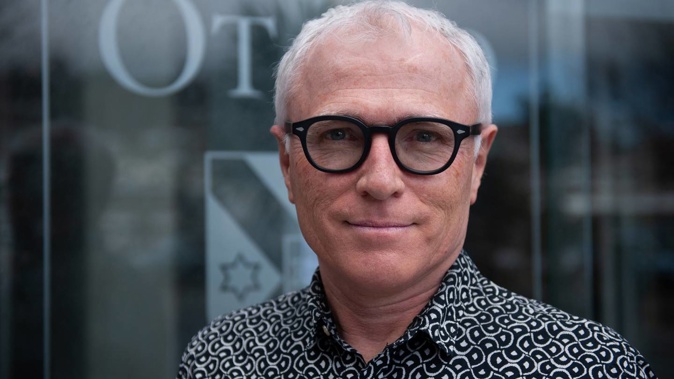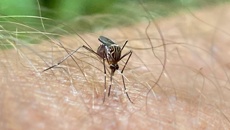
By RNZ
As case numbers fall and other countries continue to ease Covid-19 restrictions, University of Otago epidemiologist Professor Michael Baker said New Zealand will likely soon be following suit by easing mask requirements in many public spaces.
Mask-wearing is increasingly dropping in many public environments, and that's likely to continue as the shape of the pandemic changes, Baker said.
The Government is reportedly considering dropping most mandates.
"We have to also think what does it even mean, the green light traffic network. Essentially it means we just remove all mask requirements," Baker said.
"What I'm hoping is we'll look at all the controls we've got and we'll adjust the ones that are less important now that the virus numbers are dropping."
Prime Minister Jacinda Ardern said on Monday the traffic light settings would be reviewed by Cabinet in a fortnight, and it is considered likely that New Zealand may soon move to the green light traffic setting as winter ends.
Baker said he does think mask-wearing should still be required in many health settings.
"At the very least I think we should look at keeping mask requirements in healthcare facilities and aged care because then you've got lots of vulnerable people."
Case numbers and hospitalisations have been dropping, with the rolling seven-day average now at 2023.
Australia is now dropping mask requirements on domestic flights, and changes like this are a "reasonable debate", Baker said.
"As the numbers come down, the chance of you being in a plane with someone with this virus starts to get quite low, so mask requirements are less critical."
While winter is ending, it's worth remembering that New Zealand's highest case numbers came during the Omicron surge last summer, Baker said.
"At the moment this virus does not need winter to spread.
"At this stage it's a pandemic virus so it can spread any season very effectively but eventually we might see it settle down to more of a winter infection, but not yet."
Baker said it's a matter of working through the controls and seeing what is most important.
He said that requirements to self-isolate if you have a positive case should remain.
"If you have this infection you shouldn't be going to work or school or out socialising regardless of how many cases are in the community, because that will affect other people."
Baker said it is very likely that we will be needing a yearly Covid-19 booster of some kind in coming years.
"I think probably the most likely scenario with this virus is it will resemble more and more the situation with influenza where you need your annual shot for two reasons - one is that the virus is changing and the vaccine needs to be reformulated... and the other reason for getting it of course is that as with flu, your immunity wanes, so you do need to get that annual top-up."
While the pandemic may be past its peak, it has had a massive impact on death rates, such as the United States where life expectancy has dropped dramatically.
"People sometimes forget that at a global level Covid-19 was the world's number one cause of death for two years running, 2020 and 2021," Baker said.
"It may be even the same this year, so it's had a massive global impact.
"New Zealand, by delaying its arrival, we've achieved high vaccine coverage, and we still have negative excess mortality in New Zealand.
"We're one of the only countries in the world that's achieved this, so everyone in New Zealand should really congratulate our country's leadership on what it's achieved. It's a remarkable outcome.
"I know it's inconvenient to keep some of these controls and obviously we can drop some, but I think now we're in a position we know enough to know which ones to drop and which ones to keep."
'Nobody will be wearing them'
The email that suggests the Government is considering dropping many mask mandates was sent to disability support providers.
The email from the Ministry of Disabled People asked for feedback on a proposal to significantly narrow where masks have to be worn.
Under the proposal, the mandates would only be retained in the most high-risk healthcare settings.
The organisations were given only 24 hours to provide feedback to the Government.
CCS Disability Action's Melissa Smith told RNZ that timeframe wasn't enough to engage with groups most impacted by potential changes.
"I don't regard it really as consultation. I feel it was just making sure that the information had gone out prior to it going out to everybody else," Smith said.
She was also critical that the email seeking feedback had not gone to several disabled people's organisations that had been involved in the mask issue since the pandemic started.
Smith said her organisation realised that mask mandates would be removed at some point - just as they have been in other countries - but there should have been time to consult disabled people directly.
She said it was "incredibly disappointing" because networks were in place that could have been consulted if more time had been allowed.
While Covid-19 numbers were dropping it was occurring while masks were being worn, she said.
"There's a level of apathy that if masks are no longer required nobody will be wearing them. The social responsibility around that will become limited and that will have an impact on people who have compromised health and wellbeing."
The conversation in the community around the benefits of mask use in the Green traffic light should have started a long time ago, Smith said.
"It makes a huge difference to people who have compromised health if others are wearing masks."
She said vulnerable people were already staying home because they were worried about unwell people circulating in the community and there was a risk the country would slip into "she'll be right" behaviours again.
"It's another step closer for... [vulnerable people's] health only being their concern again."
Take your Radio, Podcasts and Music with you









